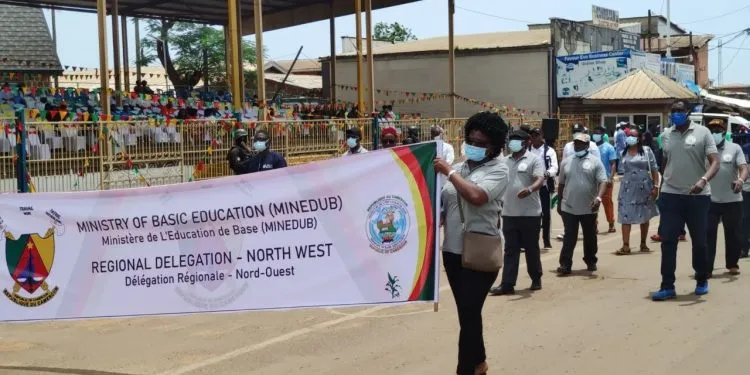By David Atangana
On May 1, amidst the challenges of conflict and poor working conditions, workers in Cameroon’s North West Region join the world in commemorating International Labour Day, albeit on a somber note.
With activities centered at the divisional headquarters I the Region, the day unfolded under the theme, “Ensuring Safety and Health at Work in a Changing Climate.”
In contrast to the usual festive atmosphere, this year’s celebration is marked by low turnout, especially from the private sector, due to the ongoing ghost town observed in most parts of the region.
The ghost town, enforced by armed separatist Ambazonia fighters, is part of the wider conflict in the English-speaking regions, where separatists are fighting to create a new state.
Amidst these challenges, one group of workers stands out as particularly vulnerable: teachers.
Teachers have been victims of threats, kidnap, killing, salary suspension and many others from both separatists fighters and their employers.
These educators, whose primary objective is to impart knowledge to young Cameroonians, find themselves caught in the crossfire between the administration and separatist rebels.
The roots of this crisis can be traced back to 2016 when Anglophone teachers and lawyers raised corporate demands over the francophonization of the English legal and educational systems.
However, these demands were hijacked by separatist militants, leading to the current conflict.
Teachers in the private sector have lost their jobs due to non-functioning schools in conflict-affected areas, while those in the public sector have had their salaries suspended for failing to be punctual in “ghosted” schools.
In 2022, over 1,400 teachers in Ngoketunjia Division and a significant number in Bui in the North West had their salaries suspended for this reason.
In April of this year, 200 teachers from the North West Region suffered a similar fate.
Apart from facing government sanctions, teachers also endure threats from both separatist fighters and government soldiers.
“We have all changed our professions on our identity cards. Identifying yourself as a teacher while traveling across this region is like giving yourself a death sentence. One is not safe on either side,” a teacher told MMI anonymously.
Reports reveal that separatists refer to teachers as traitors, while soldiers accuse them of instigating the crisis. These labels have sent some teachers to their early graves, robbed some of their jobs and hard-earned money.
“I was kidnapped and I had to buy my way by paying a ransom. That is what we have been going through but nobody sees that and all we hear at the end of the day is that our salaries have been suspended,” lamented a teacher who has been a victim of kidnapping.
The recent abduction of two teachers in Njap-Nkambe by armed separatists underscores the dire situation faced by educators in the region.
Each reportedly paid FCFA 1.5 million to secure their freedom.
As Labour Day is commemorated amidst these challenges, there is an urgent need to address the safety and well-being of workers in the conflict-hit regions of Cameroon.



